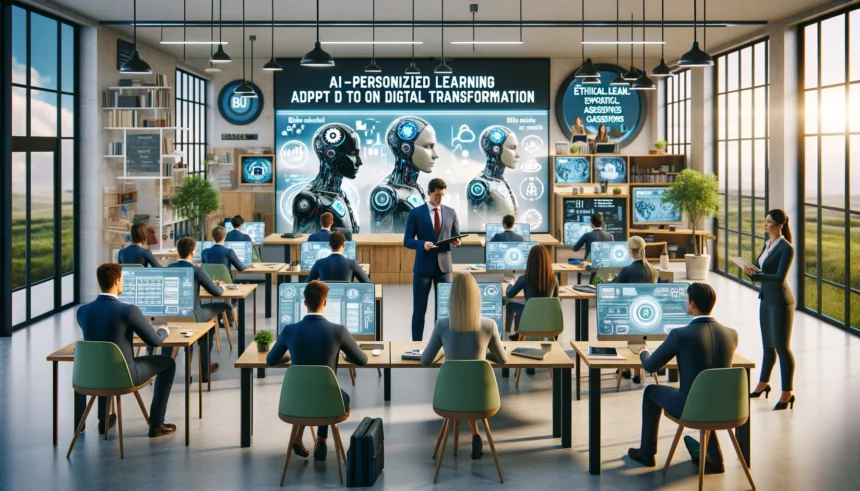Imagine you’re running a marathon, but the track keeps changing—sometimes it’s asphalt, sometimes sand, and occasionally it turns into a treadmill set to maximum speed. Now, picture yourself running in shoes that are too small, making an already tough race even harder. The objective shifts, and you’re not just trying to cross the finish line first; you’re judged on how creatively and effectively you navigate the course, adapt to changing conditions, and solve problems along the way.
This analogy reflects what it’s like to be an educational institution in 2024, where the only constant is change. Business schools are racing through an era of digital transformation, with students and employers demanding greater customization and flexibility. Traditional educational tracks are under scrutiny, and there’s a call for programs that not only teach current skills but also anticipate future needs.
Embracing Technological Change
How can business schools stay agile and keep up with emerging technologies and evolving accreditation standards? The answer lies in integrating the latest tech—including generative artificial intelligence (GenAI)—to revolutionize teaching, assessment, and interaction with students.
- Personalized Learning: Education today requires more than static programs or long, drawn-out curricular redesigns. The focus is on experiential learning, where theory meets practice, and students tackle real-world challenges. This approach demands new assessment methodologies, ensuring students receive real-time, personalized feedback that enhances their learning.
- AI-Powered Assessments: AI helps customize assessments, going beyond surface-level knowledge to explore students’ creativity, problem-solving abilities, and reasoning. AI tools can tailor questions to individual needs, provide detailed feedback, and even grade responses, making personalized attention possible in both large and small classes.
Accelerating Innovation
At Simon Fraser University’s Beedie School of Business in Vancouver, AI is a crucial tool in shaping future business practices. For instance:
- Applied Coding Courses: In Business Data Management courses, students use tools like GitHub Copilot for their final projects. This AI-powered code completion tool guides them through real-world tech applications, boosting innovation and productivity.
- AI Integration Across Curriculum: Introductory management information systems courses align with the AI adoption seen in various businesses. These courses ensure students master AI to enhance innovation and reduce reliance on AI as a substitute for their own thinking.
Ethical Stewardship in Technology
Business schools must also focus on teaching the ethical use of technology. Professors, akin to coaches, must instill in students the ability to make socially responsible decisions. This means teaching students to use AI tools as extensions of their capabilities and providing opportunities to develop the wisdom to use them judiciously.
- Ethical Leadership: Integrating discussions on the ethics of new technologies into programs helps create leaders who not only succeed but elevate the game for everyone, making a positive impact on society.
Leading by Example
The race for digital transformation began accelerating with the onset of the COVID-19 pandemic. For educators, this means embracing technology as a tool to wield wisely and cultivating a deep understanding of its applications. By mastering the digital realm, educators can equip students to navigate the complex course ahead.
For students, success starts with guidance from mentors who lead by example. Educators must be front-runners in technological application, innovation, and ethical leadership, paving the way for students to succeed in a future where technology complements, rather than controls, their lives.
Conclusion
Business schools are not just participants in the digital transformation race; they are leaders. By adopting AI and focusing on personalized, experiential learning, educational institutions can stay ahead of the pack. Embracing technology and ethical leadership will ensure that students are not only prepared for the future but are equipped to lead it. In this ever-changing marathon, it’s not just about running the race—it’s about changing the game.
















